Udupi sambar is a flavorful and mildly sweet South Indian lentil stew that originates from the Udupi region of Karnataka. It is known for its unique blend of spices and coconut, this traditional temple-style sambar is made with a variety of vegetables and a freshly ground sambar masala. The rich aroma of homemade spices, the tanginess of tamarind, and the hint of jaggery make this Karnataka-style sambar distinct from regular versions.

Udupi Sambar
love sambar so much. I have an array of sambar recipes in my blog..And it is keeping on growing and growing. This is one sambar recipe which i wanted to share for quite a long time and it is simply delicious. It comes from a place called udupi where sambar is very traditional and very famous as well.
Jump to:
What makes this udupi sambar so special is the sambar masala. The masala is made fresh each day and added to sambar. This sambar has a little coconut in it which makes it more tasty. I can assure you that when you make this sambar the smell just fills all over your house and it is simply divine. The ingredient list for this sambar is pretty lengthy and it takes a bit of time to make, but i am sure it is completely worth it.
About Udupi Sambar recipe
Udupi sambar holds a special place in South Indian kitchens, known not just for its flavor but also for its cultural significance. Unlike other sambar varieties, it emphasizes a subtle sweetness and a delicate balance of spices that create a comforting and soothing taste. The use of freshly ground coconut and a mix of seasonal vegetables adds layers of texture and freshness to the dish.
Traditionally prepared in Udupi temples, this sambar represents simplicity and purity in cooking, focusing on natural ingredients and slow simmering to develop its distinctive aroma. It pairs beautifully with a variety of South Indian staples.
Often served with idli, dosa, or steamed rice, it’s a staple in Udupi cuisine. This authentic Udupi sambar recipe uses toor dal as the base and is tempered with aromatic mustard seeds, curry leaves, and asafoetida for a satisfying finish. Whether you're looking to explore temple sambar, hotel-style sambar, or a classic Karnataka sambar recipe, this dish offers a wholesome, comforting South Indian experience.
Similar Recipes
Onion Sambar
Potato Sambar
Vegetable Sambar
Pumpkin Sambar
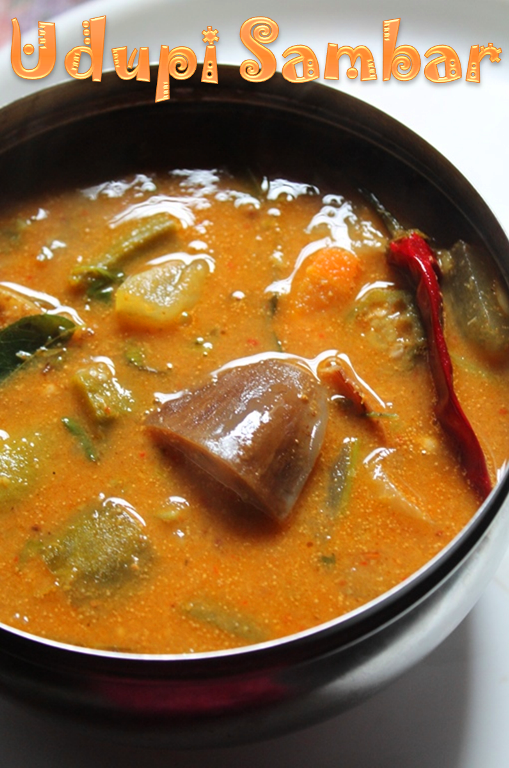
Why this recipe work?
Healthy and Comforting: This sambar is full of good nutrients from lentils and vegetables. It’s gentle on the stomach and comforting to eat. It goes well with rice, idli, or dosa and is loved by people of all ages.
Why I love this recipe - Using fresh vegetables and simple ingredients makes this sambar nutritious and good for the body. This sambar is a dish that everyone enjoys, making mealtime special and shared with loved ones. The taste and aroma take me back to traditional kitchens and happy family moments, making it feel warm and comforting.
Balanced Flavors: This Udupi sambar has the right mix of sweet, sour, and spicy tastes. The jaggery gives a little sweetness that goes well with the sour tamarind, and the spices add a nice warm flavor without being too strong.
Fresh Ingredients and Texture: Fresh vegetables make the sambar tasty and add different textures. Freshly ground coconut makes it creamy. The lentils (toor dal) give the sambar a thick and healthy base.
Ingredients
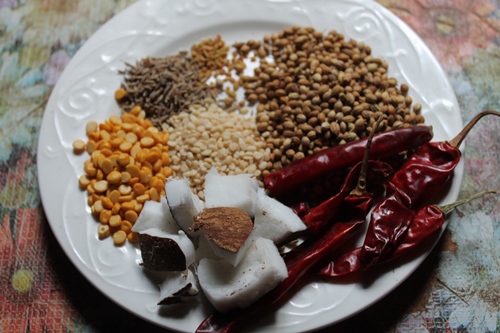
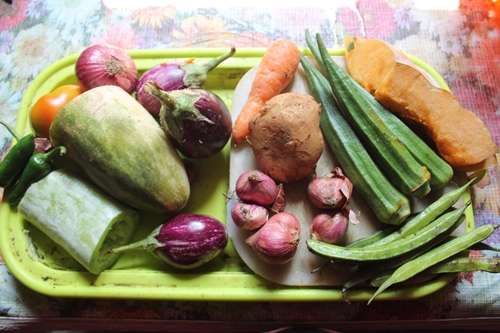
Toor Dal: This yellow pigeon pea lentil is the main protein source in the sambar, giving it a creamy and hearty base when cooked soft.
Onion & Shallots : Adds natural sweetness and a slight crunch when cooked, enhancing the overall taste.
Tomatoes: Provide a tangy freshness that balances the richness of the dal and spices.
Tamarind Pulp & Jaggery : Brings the characteristic tangy sourness that defines sambar. jaggery balance the total taste.
Coriander Leaves: Fresh herbs that add a burst of color and a fresh, citrusy note.
Sambar Masala - Dry Red Chillies, Coriander seeds, chana dal, urad dal, cumin seeds, fenugreek seeds, coconut is roasted and ground to make the aromatic sambar masala.
Vegetables: Sambar uses vegetables like carrots, ladysfinger, potato, pumpkin, cucumber, snake gourd and brinjal to add taste and flavour.
Tempering - regular tempering spices like mustard, urad dal, cumin, dry chillies, asafoetida and curry leaves is used.
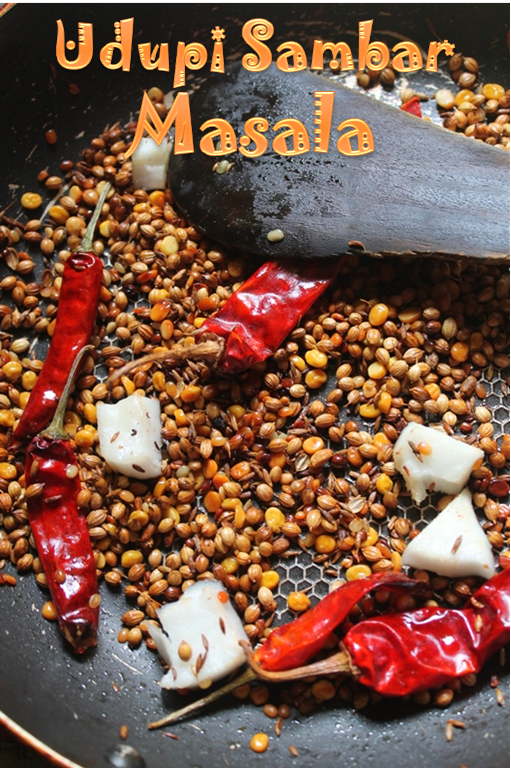
Hacks
- Roast Spices Well: Roast the spices until they release a strong aroma. This brings out deeper, richer flavors in the sambar masala.
- Cook Dal Properly: Make sure the toor dal is cooked soft and mushy. This helps the sambar thicken and blend better with the other ingredients.
- Prepare Sambar Masala in Advance: Grind and store the sambar masala ahead of time in an airtight container. It saves time when cooking later.
- Use Seasonal Vegetables: Choose fresh, seasonal vegetables for the best flavor and texture. It also keeps the dish nutritious and vibrant.
- Temper at the End: Add mustard seeds, curry leaves, and asafoetida in hot oil as a final step. This enhances aroma and taste instantly.
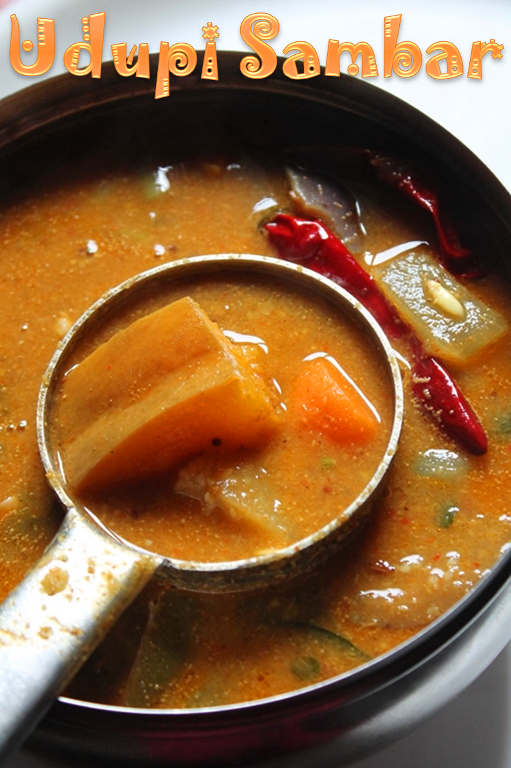
Variations
Sambar Recipe: A classic South Indian lentil stew cooked with tamarind and a blend of spices, often served with rice, idli, or dosa. It’s hearty, flavorful, and packed with vegetables.
Sambar Rice Recipe: A wholesome one-pot meal where cooked rice is mixed with sambar dal and vegetables, creating a comforting and easy dish perfect for quick lunches or dinners.
Pumpkin Sambar Recipe: A variation featuring soft, sweet pumpkin pieces that add natural sweetness and creamy texture, making the sambar mildly sweet and rich in flavor.
Vengaya Sambar Recipe: This version highlights onions (vengaya) as a key ingredient, lending a slightly sweet and savory flavor that deepens the taste of the traditional sambar.
Raw Mango Sambar Recipe: A tangy twist on the classic, using raw mango to bring a fresh, sour punch, perfect for summer meals and adding a bright, refreshing taste.
Tiffin Sambar Recipe: A lighter, mildly spiced sambar typically served with breakfast items like idli and dosa, designed to be quick to prepare and easily digestible.
Drumstick Sambar Recipe: A popular sambar variant where drumsticks (moringa pods) add a unique texture and subtle earthy flavor, enhancing both nutrition and taste.
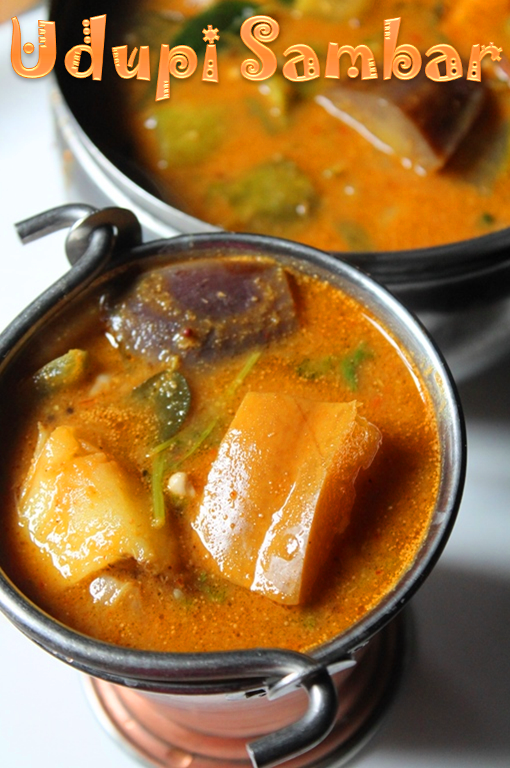
Udupi Sambar (Step by Step Pictures)
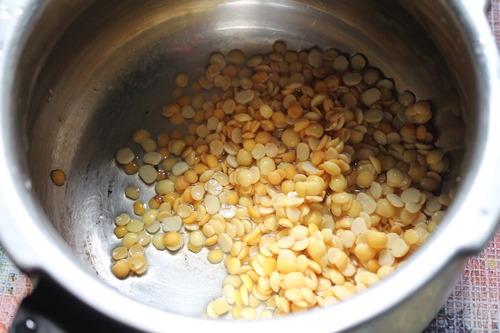 |
| Take toor dal in a cooker |
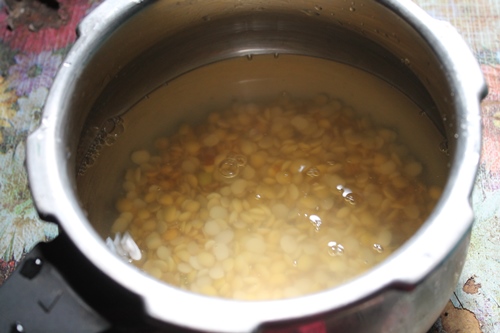 |
| Cover with water |
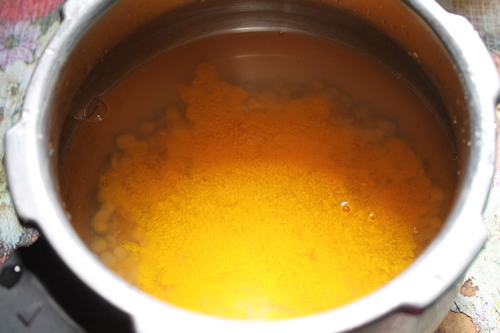 |
| add little turmeric powder |
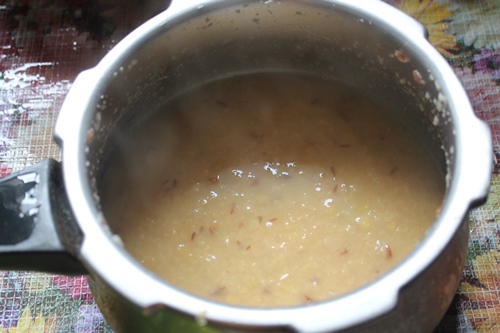 |
| and pressure cook till done..set this aside |
 |
| Take your sambar masala ingredients |
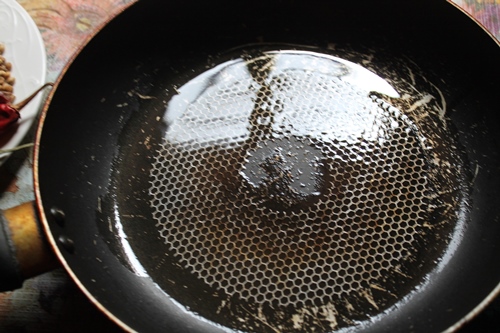 |
| heat oil in a pan |
Expert tips
1)Use Fresh Tamarind: Always soak fresh tamarind in warm water for the best tangy flavor. Avoid using tamarind paste or concentrate for authentic taste.
2)Roast Spices Slowly: Roast the sambar masala ingredients on low heat to bring out their natural oils and deepen the flavor without burning.
3)Cook Dal Softly: Make sure the toor dal is cooked until very soft and mushy — this helps create a creamy texture and blends well with the sambar.
4)Balance Flavors: Adjust tamarind and jaggery quantities according to your taste preference to get the perfect sweet and sour balance.
5)Tempering Matters: Don’t skip the seasoning step; tempering with mustard seeds, curry leaves, and asafoetida adds essential aroma and layers of flavor.
6)Use Seasonal Vegetables: Fresh, seasonal veggies will give you the best taste and nutrition. Avoid overcooking to retain their texture.
7)Simmer Slowly: Allow the sambar to simmer well after adding dal and masala to let all the flavors meld beautifully.
8)Add Coriander Last: Adding fresh coriander leaves at the end preserves their bright flavor and freshness.
FAQ
1)What makes Udupi sambar different from other sambar varieties?
Udupi sambar is known for its unique use of freshly ground coconut in the masala and a perfect balance of sweet, tangy, and spicy flavors, giving it a rich yet mild taste.
2)Can I use other lentils instead of toor dal?
Toor dal is traditional and gives the best texture, but you can experiment with masoor dal or moong dal, though the taste and consistency may vary.
3)How do I know when the dal is cooked enough?
The dal should be soft and mushy enough to mash easily, ensuring a creamy base for the sambar.
4)Can I prepare the sambar masala in advance?
Yes, you can roast and grind the sambar masala ahead of time and store it in an airtight container for quick use later.
5)What vegetables can I use in Udupi sambar?
A mix of seasonal vegetables like carrot, pumpkin, lady’s finger, brinjal, beans, snake gourd, and cucumber are commonly used.
6)Is Udupi sambar spicy?
It is mildly spicy with a balanced flavor profile, making it suitable for most taste preferences.
7)Can I make Udupi sambar without tamarind?
Tamarind is essential for the tangy flavor, but you can substitute with lemon juice or tamarind paste in smaller amounts if needed.
8)How long can I store leftover sambar?
Leftover sambar can be refrigerated for up to 2-3 days and reheated before serving.
More Sambar Recipes to Try
📖 Recipe Card
Udupi Sambar Recipe
Equipment
- Pressure cooker
- Cooking pot
Ingredients
- 2 tbsp Oil
- 1 large Onion peeled & sliced thinly
- 10 no Shallots / Sambar Onion peeled and left whole
- 2 medium Tomatoes chopped
- 2 sprig Curry leaves
- 2 no Green Chillies slit
- 1 tsp Turmeric Powder
- 3 tbsp Tamarind Pulp or to taste
- 1 tbsp Jaggery or to taste
- Salt to taste
- 1 cup Coriander leaves chopped
For Cooking Dal
- 1 cup Toor Dal
- 1 tsp Turmeric Powder
- 4 cups Water
Udupi Sambar Masala
- 6 no Dry Red Chillies
- 4 tbsp Coriander Seeds
- 2 tbsp Split Yellow Chana Dal
- 1 tbsp Split Urad Dal
- 1½ tsp Cumin Seeds
- 1 tsp Fenugreek Seeds
- ¼ cup Coconut grated
- 1 tsp Oil
Vegetables for Sambar
- 1 medium Carrot cubed
- 4 no Ladysfinger chopped
- 1 large Potato peeled & cubed
- 1 cup Pumpkin cubed
- 1 cup Cucumber peeled & cubed
- ½ cup Snake gourd chopped
- 1 cup Brinjal cubed
- 6 no String Beans chopped
- 5 no Green Beans chopped
For Tempering
- 2 tbsp Oil / Ghee
- 1 tsp Mustard Seeds
- 1 tsp Split Urad Dal
- 1 tsp Cumin Seeds
- 2 no Dry Red Chilli
- 2 sprig Curry Leaves
- 1 tsp Asafoetida
Instructions
- First cook dal, by taking all the ingredients given for cooking dal in a pressure cooker for 3 whistle, simmer the cooker for 5 mins. Turn off the heat and let the steam go all by itself. Open the cooker and mash up the dal. Set aside.
- Now make the sambar masala. Heat 1 tsp oil in a pan and add in all the sambar masala ingredients. Roast on a low heat till it gets golden. Remove this to a blender and add little water at a time and make it into a fine paste. Set aside.
- Take a big pot. Heat 2 tbsp of oil. Once it is hot, add in onions, shallots, green chillies, tomatoes and curry leaves. Saute for a couple of mins.
- Add in all the veggies along with salt and turmeric powder. Mix that well for 5 min or so. So there is no raw smell. Now add in water and cover the pot and cook for 10 mins till the veggies are tender.
- Add in cooked dal, sambar masala, jaggery and tamarind pulp. Mix well and taste the sambar adjust the seasoning. simmer the pot for 10 to 15 mins.
- Now make tempering by heating oil or ghee and frying all the ingredients listed. Pour this over the sambar and mix well. Add in lots of chopped coriander leaves and mix well. Serve hot with rice.
Nutrition
If you have any questions not covered in this post and if you need help, leave me a comment or mail me @[email protected] and I’ll help as soon as I can.
Follow me on Instagram, Facebook,Pinterest ,Youtube and Twitter for more Yummy Tummy inspiration.
IF YOU MAKE THIS RECIPE OR ANYTHING FROM YUMMY TUMMY, MAKE SURE TO POST IT AND TAG ME SO I CAN SEE ALL OF YOUR CREATIONS!! #YUMMYTUMMYAARTHI AND @YUMMYTUMMYAARTHI ON INSTAGRAM!


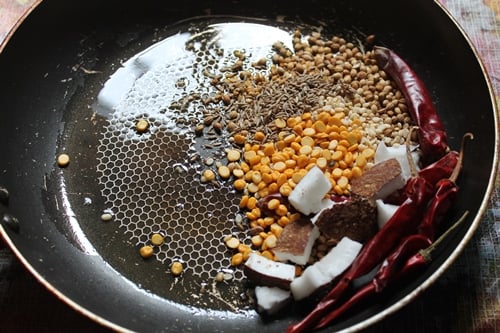
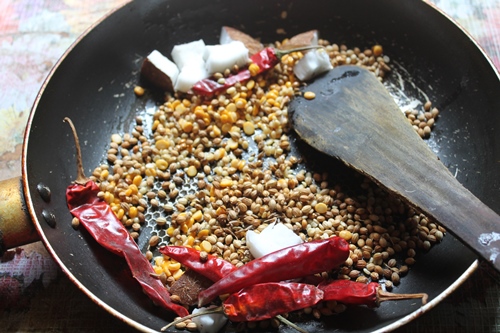
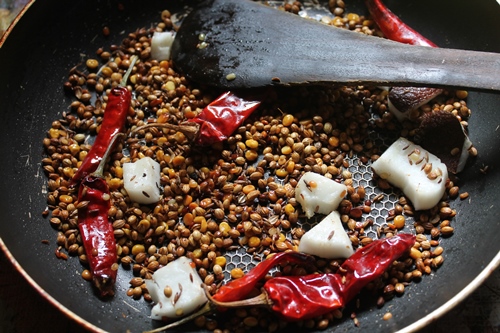
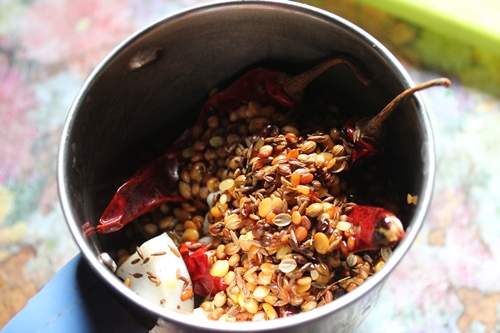
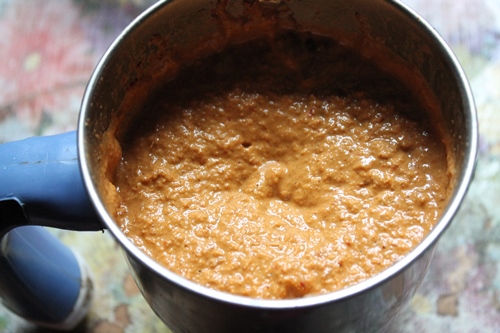
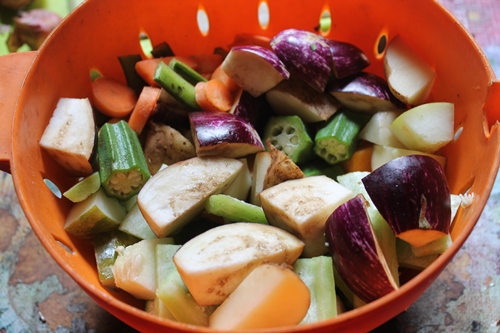
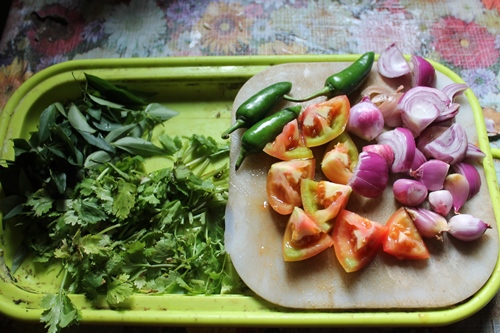
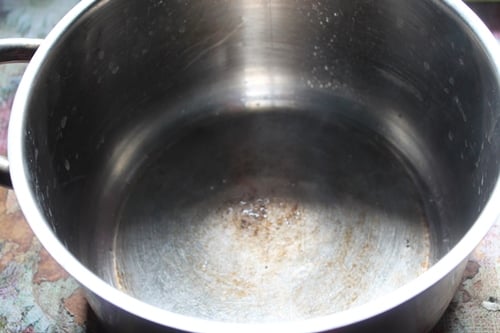
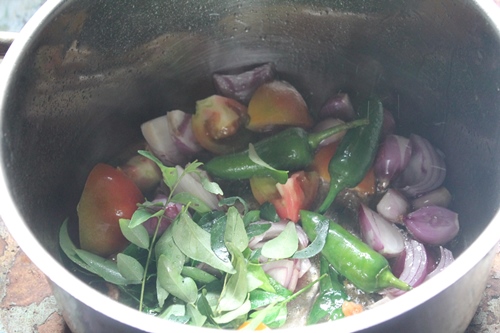
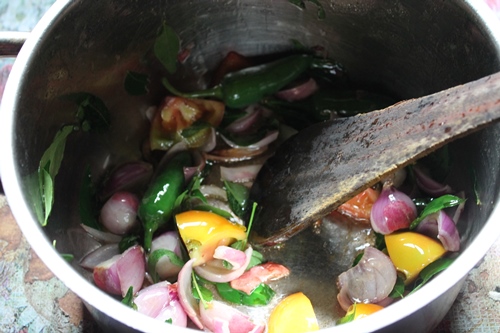
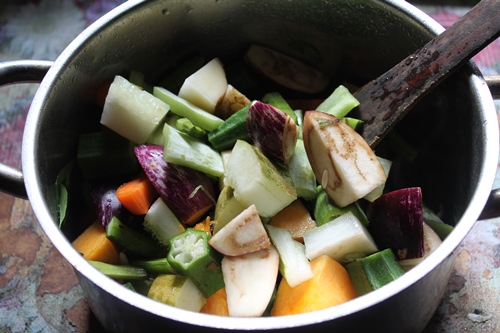

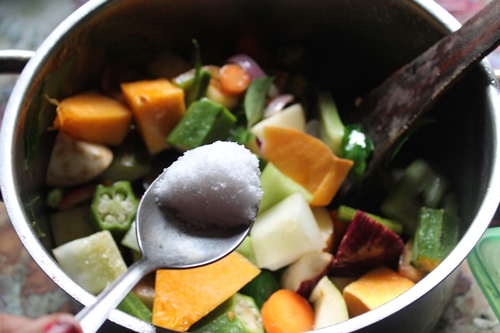
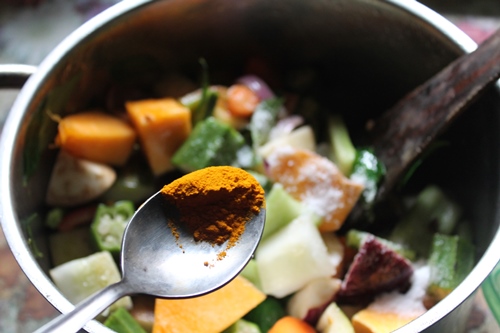

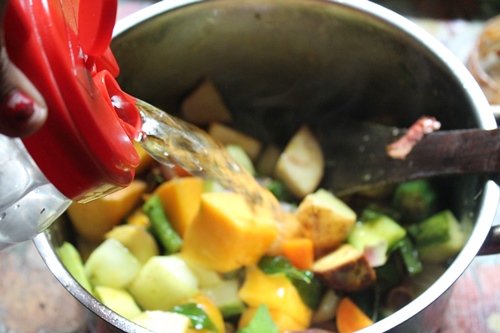
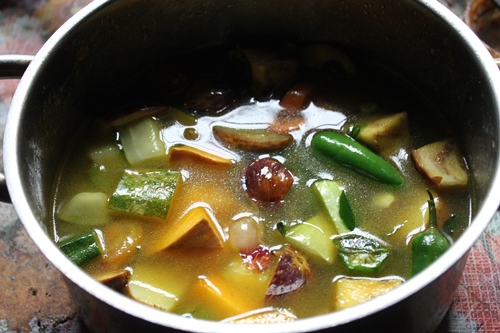
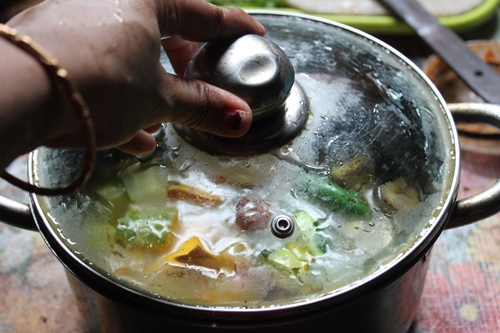
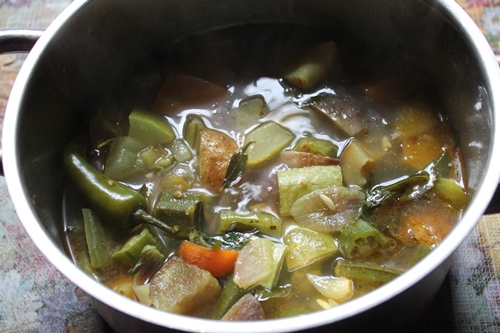
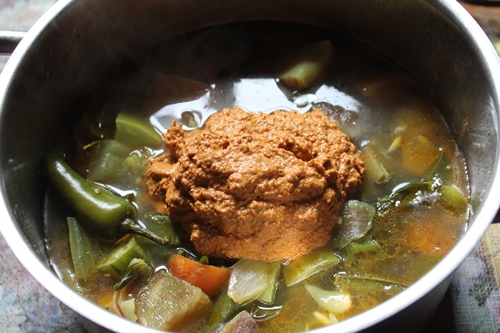
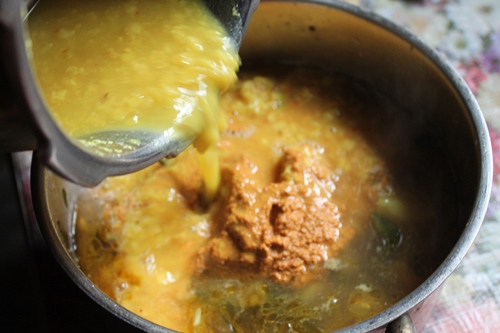
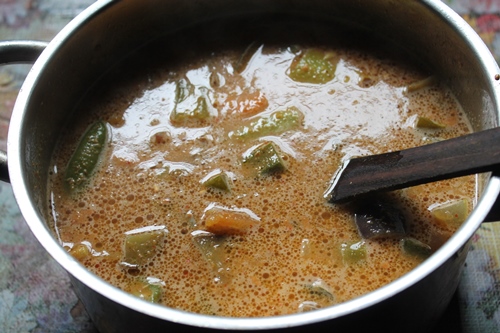
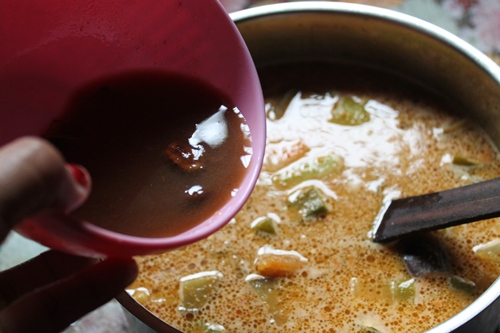
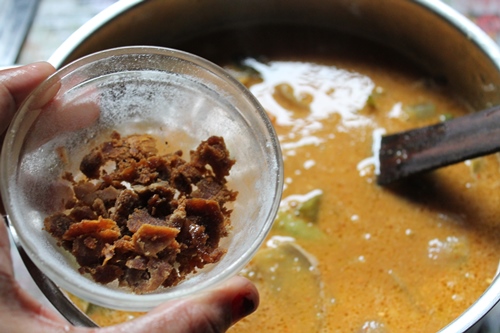
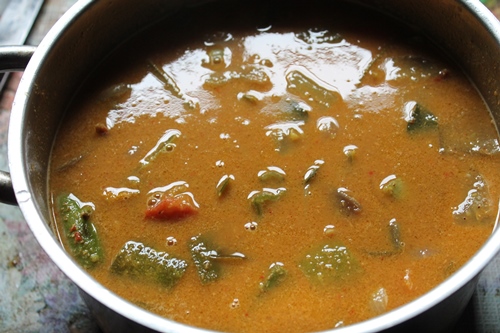
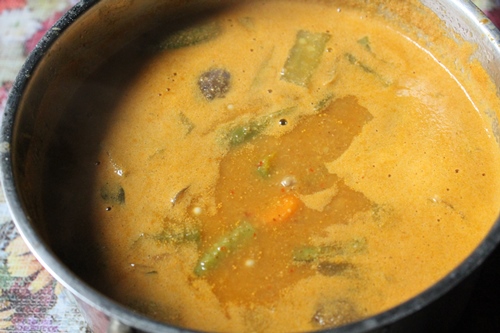
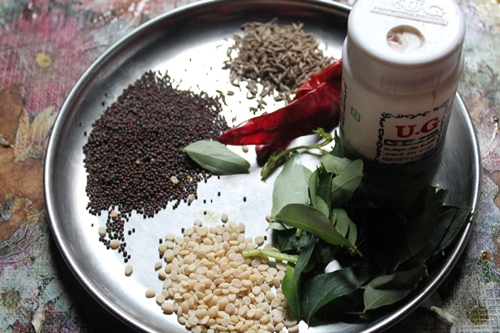
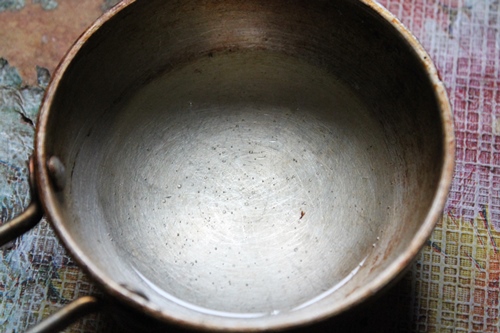
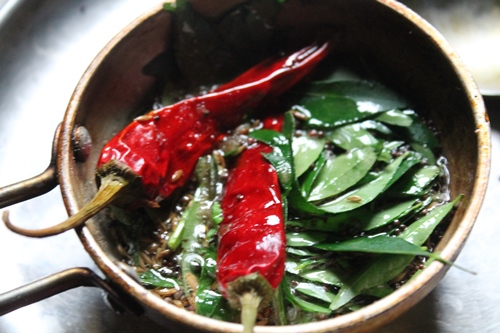
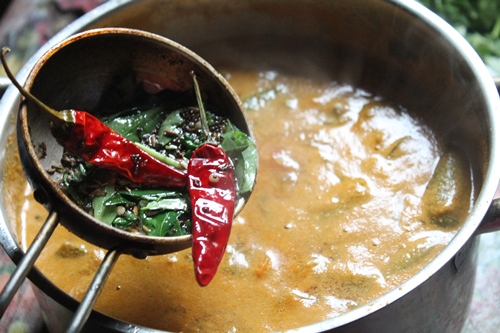
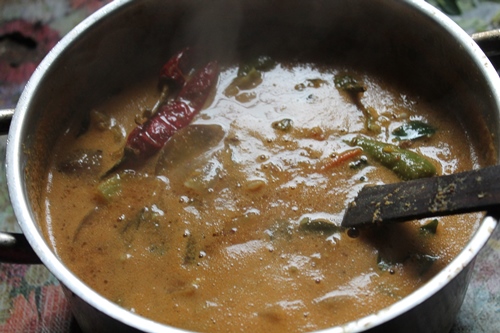
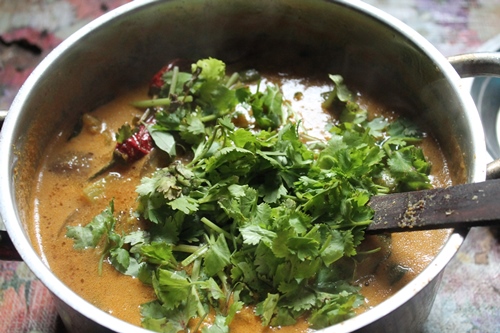
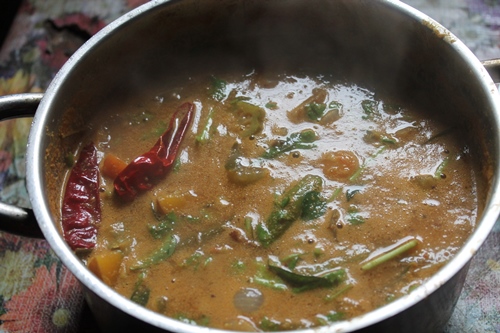
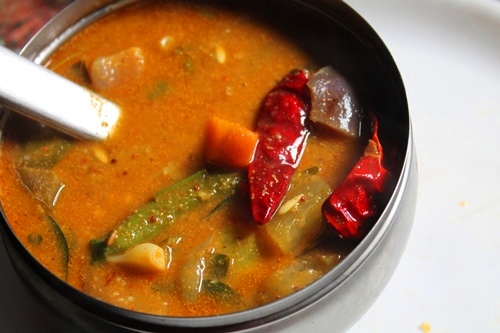
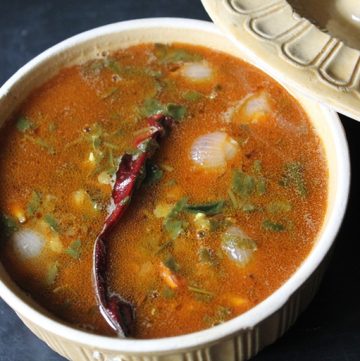
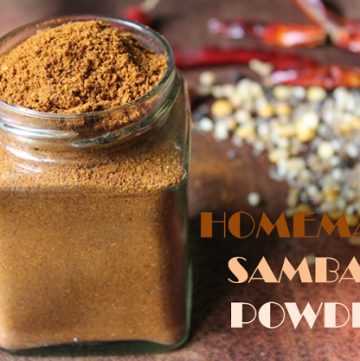
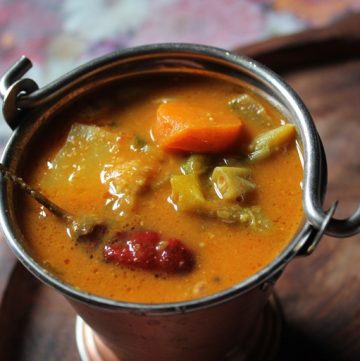
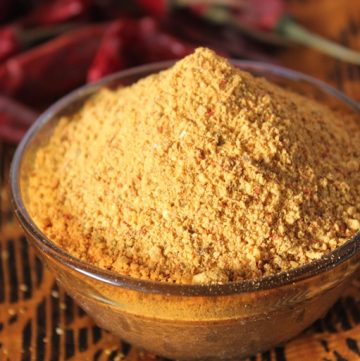
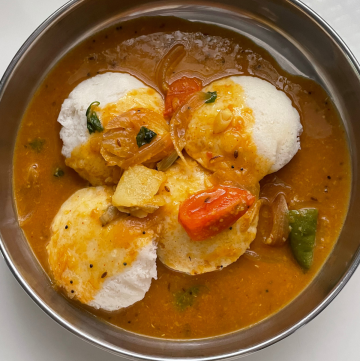
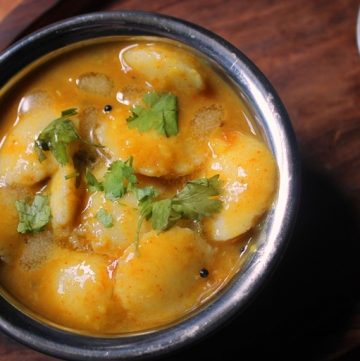
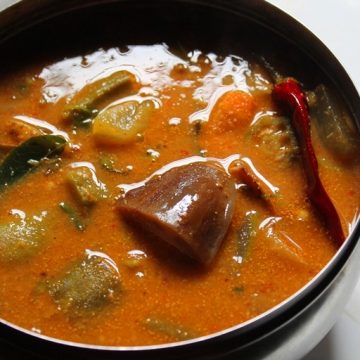
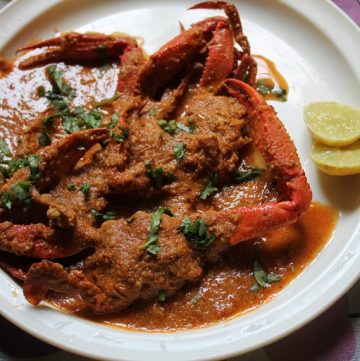

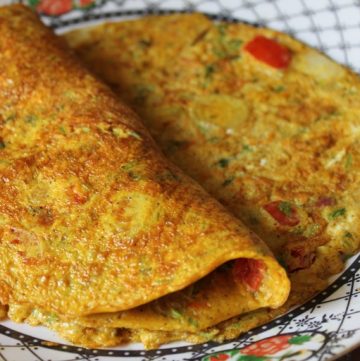
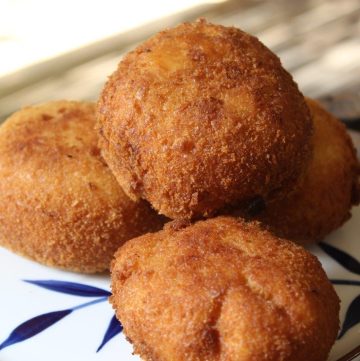

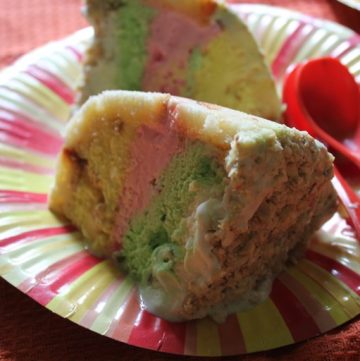
plasterer bristol
been looking for a nice recipe of this to try. Thanks for sharing this.
Simon
Mrs.Jessy
Hi Arthy today I tried ur udipi sambar.came out very well.awesome taste..my hubby likes this sambar very well.thank u very much for the recipes
Pushphaa Ms.
Hi Arthi, can i opt out the coconut?
Pushphaa Ms.
Hi Arti, can i opt out the coconut?
Aarthi
@Pushphaa Ms.it adds nice taste..you can skip that too
Anonymous
I tried this Udipi Sambar & it came out Awesome, We liked the taste very much.
Thank you for sharing this recipe.
Can i make the sambar masala in advance & refrigerate to be used for next day?
kavita
Aarthi
@Anonymousyes u can keep it in fridge and use.
Josh
Hey Aarti ,
Thanks for this reciepe taste is simply yummy ….perfect .I have a question for you i was in pune for sometime where this restuarant served this red colour sambar very tasty they call it shetye sambar ,i don't know what is the difference .Can you please share the difference .i would love to prepare that too.If you have that reciepe please do share.
Keep up the good work ,very kind of you to share.
thanks
Aarthi
@Joshi am not sure about that..Haven't heard about that as well
ಚಂದ್ರು(Chandru)
Thanks, I always liked the sambar prepared for marriages in Bangalore, Mysore are while i tried this recipe and it came up well, quite in sync but i need to improvise yet, but loved it :)..
Thumba Danyavadagalu...(Thanks)
Chandru
Pallavi Pai
Hi aarthi..i tried the udpi sambar .thought the taste was excellent ..i jus had two queries..one is the color was light brwn ..the color in the pik posted by u ia dark..n my sambar was very thick... cld u plz help
Unknown
Tried your recipe today, it was finger licking good. Thank you so much
Unknown
Hi Aarti, tried your udupi sambar recipe today. It came out really good. Thank you for sharing this recipe....
-Deepthi
avirat inn
It’s very great... I also want to share some details about avirat inn dewas madhya pradesh
sandi
This came out very well. I still remember the taste of the sambar I used to have in one of the South Indian restaurants in Mumbai - always used to get potato bondas where they poured the sambar all over. Now this sambar is nostalgic as it tastes exactly like that one. Thanks for sharing this. Much appreciated!
M. Naveena
Cucumber is not used for sambar, you used that one is striped pear gourd ma'm
Deepak Ajith
Dear Madam
My name is deepak.. And i love to cook food and make my mom happy
Tried out ur recipie.. Turned out to be good...
Thankyou for sharing this.
Jessie
Aarthi I made this today and it was just lip smacking. This one is a keeper for sure. I wasn’t crazy about the color so added some Kashmiri chilli and that did the job! Thanks for sharing this recipe